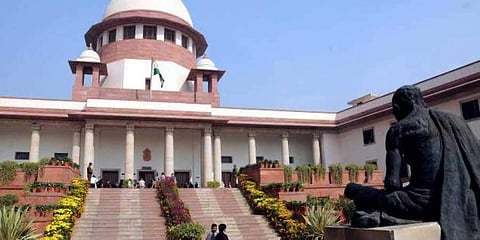

NEW DELHI: With the President Ram Nath Kovind giving his nod to ‘The Supreme Court (Number of Judges) Amendment Act, 2019’ which increases the sanctioned strength of the apex court judges from the existing 31 to 34, the immediate challenge for the Supreme Court collegium will now be to fill four vacant
seats, including one vacancy which will arise later this month when Justice A M Sapre retires.
Currently, the Supreme Court has 31 judges in total, including the CJI. Justice A M Sapre, is scheduled to retire on August 27.As on the June 1, 2019, there were 58,669 cases pending in the Supreme Court.
The bill states that, “The Chief Justice of India has intimated that inadequate strength of judges is one of the prime reasons for the backlog of cases in the Supreme Court. It is not possible for the Chief Justice of India to constitute a five judges bench on a regular basis to hear cases involving substantial questions of law as to the interpretation of the Constitution as it would result in the constitution of less number of division benches which would lead to a delay in hearing of other civil and criminal matters.”
The Supreme Court (Number of Judges) Act, 1956 was last amended in 2009 to increase the judges’ strength from 25 to 30 (excluding the CJI).
The move by the government came after CJI Ranjan Gogoi had written a letter to Prime Minister to augment the judge-strength in the SC appropriately so that it can function more efficiently and effectively.